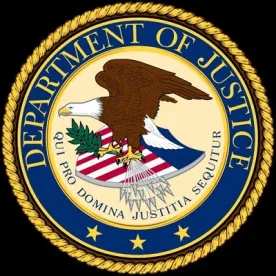Last Thursday, September 10, 2020, the U.S. Department of Justice’s Antitrust Division (“DOJ”) issued an updated Business Review Letter (“2020 Letter”) to the Institute of Electrical Electronics Engineers, Incorporated (“IEEE”) clarifying the DOJ’s views on licensing and enforcement practices related to standard essential patents (“SEPs”). The 2020 Letter is part of a continuing series of policy statements favoring a diminished role for antitrust enforcement in intellectual property disputes, following its amicus brief opposing the FTC’s position in the recently-decided Qualcomm decision. As if to emphasize the point, DOJ also announced last week a joint workshop with the USPTO to promote innovation in the life science sector. The workshop will discuss the importance of intellectual property rights, and include panels on how patents and copyrights incentivize and reward innovation.
The 2020 Letter takes an aggressive and forceful tone and therefore deserves close examination. The DOJ lamented the misuse of its earlier 2015 letter to the IEEE (“2015 Letter”) regarding the IEEE’s Patent Policy, complaining that the 2015 Letter was “frequently and incorrectly” cited “as an endorsement of the IEEE Policy” that limits SEP holders rights to seek injunctive relief, “which was not [DOJ’s] purpose or intent.” The 2020 Letter also updated portions of the analysis applied in the 2015 Letter to incorporate what has actually occurred in SEP licensing and enforcement rather than what the DOJ speculated would occur back in 2015. These altered expected outcomes include both that (1) the perceived risk of “hold-up” never materialized and instead “hold-out” became pervasive, and that (2) the landscape related to licensing of SEPs and governance of standard development organizations (“SDOs”) (sometimes also referred to as SSOs) had changed. The major take away from the updated 2020 Letter is that the DOJ now seems to explicitly support the right of SEP holders to seek injunctive relief, stating that “[d]enying essential patent holders access to injunctive relief has the potential to lessen returns for inventors and thereby to harm incentives for future innovation.” Also noteworthy, although not discussed at length in this post, is the 2020 Letter’s attempt to redefine the appropriate royalty base for SEPs. As with injunctive relief, case law and policy surrounding royalty rates has shifted from an emphasis on the “smallest saleable patent practicing unit” to a recommendation that “parties should be given flexibility to fashion licenses that reward and encourage innovation,” which may include end products as the royalty base.
The DOJ analyzed IEEE’s patent policy, at the IEEE’s request, in the 2015 Letter, providing guidance on the DOJ’s then current antitrust and anticompetitive enforcement practices. At the time, the IEEE policy was seen by many as an attempt to chill innovation and punish SEP owners by limiting their rights by, for example, limiting the ability of IEEE SEP holders to seek injunctive relief. In the 2015 Letter, the DOJ did not explicitly reject this approach from IEEE, leading many to believe that the DOJ’s failure to affirmatively reject this approach was an endorsement of it.
The DOJ in its 2020 Letter says not so. After acknowledging that the 2015 Letter did not anticipate that “hold-out” would be more problematic than “hold-up”, the DOJ explicitly supports SEP owners in their pursuit of injunctive relief to enforce their SEPs especially in the event of hold-out from an unwilling licensee:
Injunctive relief is a critical enforcement mechanism and bargaining tool—subject to traditional principles of equity—that may allow a patent holder (including an essential patent holder) to obtain the appropriate value for its invention when a licensee is unwilling to negotiate reasonable terms.
Importantly, the 2020 Letter recognizes that SDOs and participants in SDOs need to avoid both “hold-up” and “hold-out” and specifically cautioned the IEEE (and SDOs generally) that “SDO policy updates should encourage good-faith bilateral licensing negotiation by both patent holders and implementers.” (emphasis in the original).
Since the DOJ’s 2015 Letter, reports of SDO industry influence and misuse to limit competition and delay innovation have increased significantly—something the DOJ did not contemplate at the time. Now in the 2020 Letter, the DOJ admonished SDOs’ behavior, particularly the IEEE, for its role in disruptive and “opaque” standards development. The 2020 Letter encouraged the IEEE, and all SDOs, to balance leadership and abolish anticompetitive policies or rules that favor certain interests, such as implementers, at the detriment of others, like innovators.
The 2020 Letter is highly unusual in its public and forceful rebuke of the IEEE. The DOJ felt it appropriate to correct the overall conversation related to the U.S. treatment of SEPs and FRAND licensing, in part because of how the 2015 Letter was being misused by other antitrust enforcers, including foreign enforcers, to impede dynamic competition by discouraging the free exercise of IP rights. Since 2015, the anticipated SEP “hold-up” concern has dissipated (or, in actuality, never materialized), illustrating that antitrust laws are not an appropriate vehicle to challenge SEP owners on “what are essentially contractual disputes between private parties engaged in the pursuit of technological innovation.” Demonstrating the point, antitrust concerns appear to be on the wane for SEP patent assertion in the U.S., in light of recent developments such as the Ninth Circuit ruling in the FTC v. Qualcomm case, and the dismissal of an antitrust complaint filed against Avanci. Even with these recent developments in the U.S., the issue is still very much open in Europe, where implementers continue to try and shield themselves by relying on German or European competition law
While the 2020 Letter is directed to SEPs, the DOJ’s clarification may have far-reaching impacts. The most important of these potential impacts are the effect the 2020 Letter may have on patent holders’ ability to obtain injunctions for patent infringement in the U.S. which since eBay has been outside of pharma cases nearly unobtainable. In fact, since 2006, the injunction denial rates “at a minimum, [have] quadrupled.” Ryan T. Holte, The Misinterpretation of eBay v. MercExchange and Why: An Analysis of the Case History, Precedent, and Parties, Chapman L. Rev., Vol. 18:3, 677-719 (June 6, 2015). In turn, the inability for U.S. patent holders to obtain injunctive relief encouraged patent owners to explore other U.S. enforcement venues, including section 337 proceedings at the ITC and post-grant proceedings with the PTO, and look abroad for effective enforcement of patent rights. The 2020 Letter is one of many positive SEP developments over the last several weeks in Europe and the U.S. which bode well for rebalancing the SEP licensing market to promote “good faith bilateral licensing” of the kind highlighted in the 2020 Letter.








 />i
/>i
